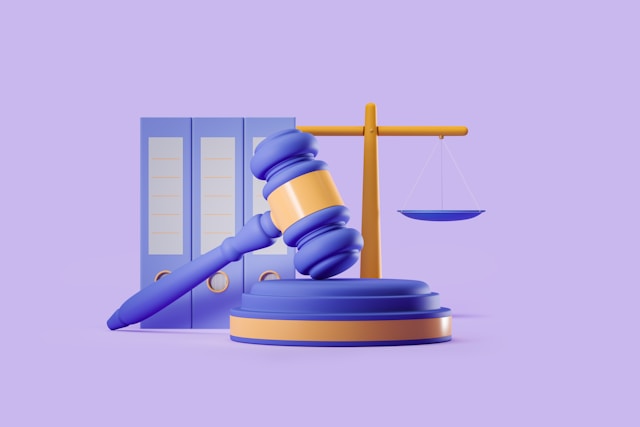Managing a rental property can be a profitable investment, but it comes with various challenges, such as collecting rent payments from tenants and maintaining accurate financial records.
In this article, we’ll discuss some essential tips to simplify property finances management and the rent collection process.
Rent Collection
Landlords who manage multiple properties or have a large number of tenants may find it challenging to keep track of payments and follow up with tenants who are late or delinquent on payments. As a landlord, collecting rent on time can be a challenging task. However, there are a few tips that can help make the process smoother:
- Establish Clear Rent Payment Terms
One of the most important steps in rent collection is establishing clear payment terms with tenants. The Landlord’s responsibility is to communicate the rent payment due date, late fee policy, and payment options upfront.
- Collect Rent Electronically
One of the ways to collect rent from tenants is electronic rent collection which is a convenient method that enables tenants to pay their rent quickly and easily. This method also eliminates the need for landlords to visit the property to collect rent. One of the ways to collect rent electronically is through online payment systems such as PayPal.
When collecting rent payments online, landlords need to ensure that the platform they’re using is secure and reliable. They should also make sure to communicate with their tenants about any changes in the rent collection process and provide clear instructions for paying online.
- Set Up Automatic Rent Collection
Setting up automatic rent collection is another effective method for ensuring timely rent payments. With automatic rent collection, tenants authorize their bank accounts to pay rent automatically every month. This method eliminates the need for landlords to remind tenants to pay rent.
- Consider Rent Collection by Email
Landlords can set up a payment request and send it to tenants via email or text message. Tenants can then pay rent using their bank account, credit card, or debit card. When sending rent payment reminders by mail, landlords should provide clear instructions on the payment amount, due date, and payment options.
To ensure the rent payment is received, landlords can use certified mail when sending rent payment reminders. This method provides proof of delivery and requires a signature from the recipient.
- Use a Rent Collection Service
One of the best ways to collect rent payments is with the help of rent collection service providers. The service provider handles rent collection, sends reminders to tenants, and manages late fees on behalf of landlords. This method also provides an electronic record of rent payments, making accounting and tax reporting easier for landlords.
- Consider Hiring a Property Management Team
Consider hiring a property management team to help you with rental property management. A professional property management company has their own software platforms to help landlords manage all aspects of their rental property, including rent collection. Some software platforms have built-in rent collection features that enable landlords to set up automatic rent payments and send reminders to tenants who are late with their rent.
Tips for Collecting Rent on Time
Collecting rent on time is crucial for landlords to maintain a steady cash flow and avoid financial hardships. Here are some tips for collecting rent on time for your rental property:
- Set clear rent payment terms: Make sure your tenants understand when the rent is due, how much they should pay, and acceptable payment methods. Include these details in the lease agreement, and make sure your tenants sign and understand it before moving in.
- Send payment reminders: Send payment reminders a few days before the due date to remind tenants of the upcoming payment. This can be done via email, text message, etc.
- Offer incentives for early payment: Encourage tenants to pay their rent on time by offering incentives such as a discount on the next month’s rent.
- Enforce late fees: Make sure you enforce late fees when rent payments are past due. Include late fees in your lease agreement, and stick to the policy when collecting rent.
- Communicate with tenants: If a tenant is consistently late with rent payments, reach out to them and discuss a payment plan or alternative payment methods. Good communication can prevent late payments from turning into evictions.
- Use property management software: Consider using property management software that automates rent collection and sends reminders to tenants.
How To Keep Track of Rental Payments
There are several ways that landlords can keep track of rental payments. Here are a few tips:
- Create a spreadsheet: Landlords can use a simple spreadsheet to track rental payments. They can create columns for the date of payment, the amount paid, and the tenant’s name.
- Request receipts: Landlords can ask tenants to provide receipts for rental payments. This can help to ensure that payments are being made on time and can serve as proof of payment if there are any disputes in the future.
- Regularly check bank statements: Landlords can also regularly check their bank statements to ensure that all rental payments have been received and deposited into their accounts.
By using one or more of these methods, landlords can effectively keep track of rental payments and ensure that they are being paid on time.
Financial Management
When it comes to financial management, it can be challenging to keep track of everything. That’s why many property owners and managers opt for property bookkeeping and financial management services to help them stay organized and on top of their finances.
Here are some tips for financial management in property management:
- Keep accurate records: As a property manager, it is essential to keep accurate records of all financial transactions, including rental income, expenses, and repairs. Keeping accurate records will help you track your income and expenses and make informed financial decisions.
- Create a budget: Create a budget for your property to help you stay on top of your finances. A budget will help you plan your expenses and keep track of your income. It will also help you identify areas where you can cut costs.
- Set financial goals: Set financial goals for your property, such as increasing rental income or reducing expenses. Having clear financial goals will help you stay motivated and focused on achieving your objectives.
- Monitor cash flow: Monitor your cash flow regularly to ensure that you have enough money to cover your expenses. Keep track of your rental income and expenses to help you manage your cash flow effectively.
- Review financial reports: Property management financial reports provide a detailed and accurate overview of the income and expenses associated with a rental property, making it easier for landlords to manage their finances effectively. Review your financial reports regularly to track your income and expenses, monitor your budget, and identify areas where you can improve your financial management. You need to analyze rental property financial statements which are important documents that provide landlords with a clear understanding of their rental property’s financial performance, including income, expenses, and profit or loss.
Consider hiring a property management company to help you manage your finances. A professional can help you keep accurate records, create financial reports, and manage your budget effectively.
FAQs of Rent Collection and Financial Management
- What should landlords do if tenants are consistently late with rent payments?
The landlord can choose to issue the N4 form (notice of non-payment).
- How can landlords encourage tenants to make timely rent payments?
Landlords can offer incentives for on-time payments or set up automatic payment options.
- Can landlords charge late fees for rent payments?
Yes, landlords can charge late fees as long as they are outlined in the lease agreement and comply with local laws.
- How can landlords ensure accurate accounting and tax reporting for their rental property?
Landlords should keep detailed financial records and consult with a professional accountant for tax reporting.
- What expenses can landlords deduct from rental income for tax purposes?
Landlords can deduct costs including maintenance, repairs, mortgage interest, and property taxes.
- Can landlords require tenants to pay for repairs or maintenance expenses?
Landlords can require tenants to pay for repairs or maintenance if the damage is caused by tenants or their guests.
- What should landlords do if tenants fail to pay rent?
Landlords should communicate with the tenant, enforce late fees or penalties, and take legal action if necessary.
- How can landlords create a budget for their rental property?
Landlords should identify all expenses and create a budget that includes monthly income, expenses, and savings.
- Should landlords hire a professional accountant to manage financial records and tax filing?
It is recommended for landlords to hire a professional accountant to ensure accurate financial records and tax reporting.
- Can tenants negotiate the terms of their lease, including rent payments and late fees?
Tenants can negotiate lease terms with the landlord, but the landlord has the final say on the terms included in the lease agreement.
- What should landlords do if they have trouble collecting rent from a tenant?
Landlords should communicate with the tenant, offer payment plans or other solutions, and take legal action if necessary.
- What is the best way to keep financial records for a rental property?
The best way to keep financial records for a rental property is to hire a professional bookkeeper.
- How to keep track of rental payments?
Landlords can keep track of rental payments by using software, spreadsheets, etc. It’s important to record the date, amount, and payment method for each payment.
These are all you need to know for the best ways to collect rent payments.





